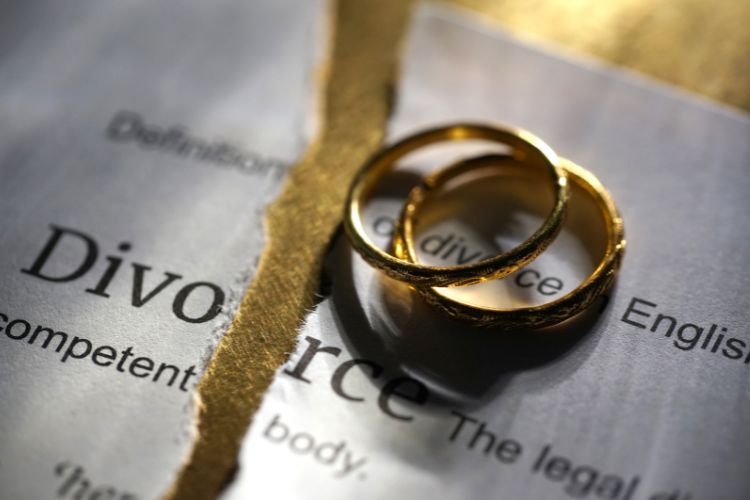
Divorce is challenging under the best of circumstances, but when domestic violence is involved, the stakes become much higher. For victims of abuse, the process isn’t just about ending a marriage—it’s about ensuring safety, reclaiming autonomy, and securing a future free from fear. This article will guide you through the complexities of handling divorce when domestic violence is a factor, offering practical advice on protecting yourself and your rights.
The Hidden Impact of Domestic Violence on Divorce
Domestic violence doesn’t just leave physical scars; its emotional and psychological impacts can profoundly influence divorce decisions. Many victims endure years of abuse before deciding to go, often due to fear, financial dependency, or concern for their children’s well-being.
How Emotional Abuse Shapes Divorce Decisions
Emotional abuse, often overlooked, can be as damaging as physical violence. The constant manipulation, threats, and degradation can erode a person’s self-worth, making it difficult to envision a life beyond the abusive relationship. When victims finally decide to file for divorce, they carry these unseen scars, which can affect their decisions and interactions throughout the legal process.
Addressing Gaps in the System
While the legal system offers protection, it often falls short of fully addressing the nuances of domestic violence. Restraining orders and emergency protective measures are crucial but challenging without clear evidence of physical harm. This gap leaves many victims vulnerable, particularly those suffering from emotional or psychological abuse, which is harder to prove in court.
The Silent Preparation: Protecting Yourself Before Filing

Leaving an abusive relationship requires careful, often covert, planning. Gathering resources and information while maintaining the appearance of normalcy is essential for ensuring safety.
Covertly Planning Your Exit
Before filing for divorce, creating a detailed exit plan is crucial. This plan should include finding a safe place to stay, whether with trusted friends, family, or at a shelter. Ensure that your move can be made quickly and without alerting your abuser. Prepare a “go-bag” with essential items like identification documents, money, keys, and necessary medications.
Securing Your Resources Without Alerting Your Abuser
Financial dependence is a common barrier for victims seeking to leave an abusive partner. Start by discreetly setting aside funds and establishing a separate bank account. You may also consider gathering important financial documents—tax returns, bank statements, and property deeds—and storing them in a secure location outside the home. Consulting with a financial advisor specializing in divorce can provide additional strategies to safeguard your assets.
Legal Strategies Tailored for Domestic Violence Cases

When domestic violence is a factor, the legal strategy for divorce must be carefully considered and tailored to address the unique challenges involved.
Leveraging Emergency Orders
Emergency protective orders (EPOs) are designed to provide immediate protection from an abuser. These orders can include provisions such as requiring the abuser to leave the home, prohibiting contact, and granting temporary custody of children. To obtain an EPO, you must demonstrate that you are in immediate danger. This can be done through evidence like police reports, medical records, or witness testimony. It’s essential to file for an EPO as soon as possible after leaving the abusive environment to ensure your safety.
The Role of Digital Evidence
In today’s digital age, technology can play a pivotal role in documenting abuse. Text messages, emails, social media posts, and recorded phone calls can all be critical evidence in court. However, collecting this evidence must be done cautiously to avoid alerting the abuser. Consult with your attorney about the best practices for gathering and presenting digital evidence, ensuring it is done legally and effectively.
Breaking the Silence: Navigating Court with Confidence
Facing your abuser in court can be one of the most daunting aspects of the divorce process, but with the proper preparation and support, you can navigate it with confidence.
Your Voice Matters
When domestic violence is involved, your testimony is a powerful tool in court. Prepare by working closely with your attorney to outline your experiences clearly and concisely. Practice speaking confidently and calmly, even when recounting difficult experiences. Remember, your voice is vital in ensuring that the court understands the full extent of the abuse and the need for protective measures.
What to Do When the Abuser Fights Back
Unfortunately, abusers often retaliate when they feel they are losing control, which can manifest in various ways, from legal challenges to harassment. It’s important to anticipate these actions and prepare accordingly. This may include strengthening your protective order, documenting any new incidents of harassment, and staying in close communication with your attorney and law enforcement. If the abuser challenges custody or attempts to manipulate the legal process, your preparation and the evidence you’ve gathered will be crucial in countering these tactics.
Beyond the Courtroom: Healing After the Storm

The legal battle is just one part of the journey. After the divorce is finalized, healing and rebuilding your life begins.
Steps to Rebuild Your Confidence
Leaving an abusive relationship can leave deep emotional wounds, but it also marks the beginning of a new chapter in your life. Rebuilding your confidence starts with acknowledging your strength and the courage it took to leave, and engaging in therapy, whether individual or group, can provide tools to process your experiences and begin healing. Small steps, like setting personal goals or exploring new interests, can help you rediscover your identity outside the shadow of abuse.
Embracing a Future Free from Fear
The end of an abusive marriage opens the door to a future free from fear. While the road to recovery may be long, focusing on the possibilities ahead is important. This might mean pursuing a new career, relocating to a new area, or simply finding joy in everyday activities previously overshadowed by abuse. Surround yourself with positive influences—friends, family, and supportive communities—that encourage growth and happiness.
Safeguarding Your Future
Divorce, especially when domestic violence is involved, is more than just a legal process—it’s a critical step toward reclaiming your life and ensuring your safety. This journey is fraught with challenges, but it also presents an opportunity to break free from a cycle of abuse and begin anew. As you navigate this path, remember that you are not alone. With the proper support, including a knowledgeable Arizona divorce attorney, you can protect your rights and build a future that reflects the strength and resilience you’ve shown. Take the first step today to secure the life you deserve—one that is safe, empowered, and entirely yours.





